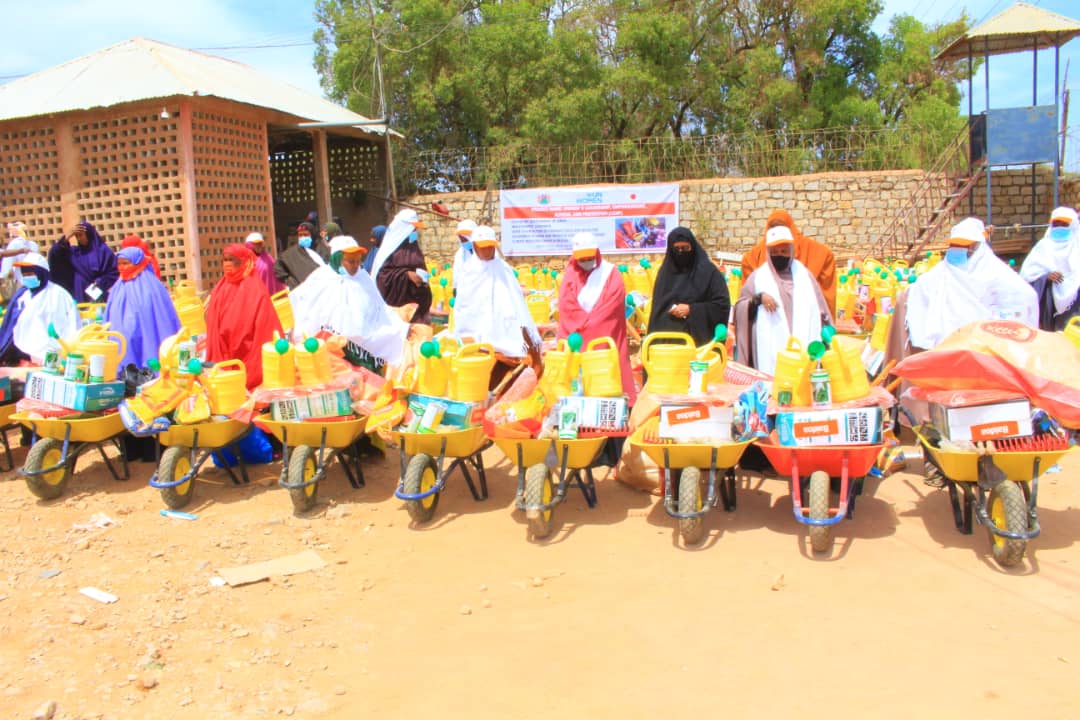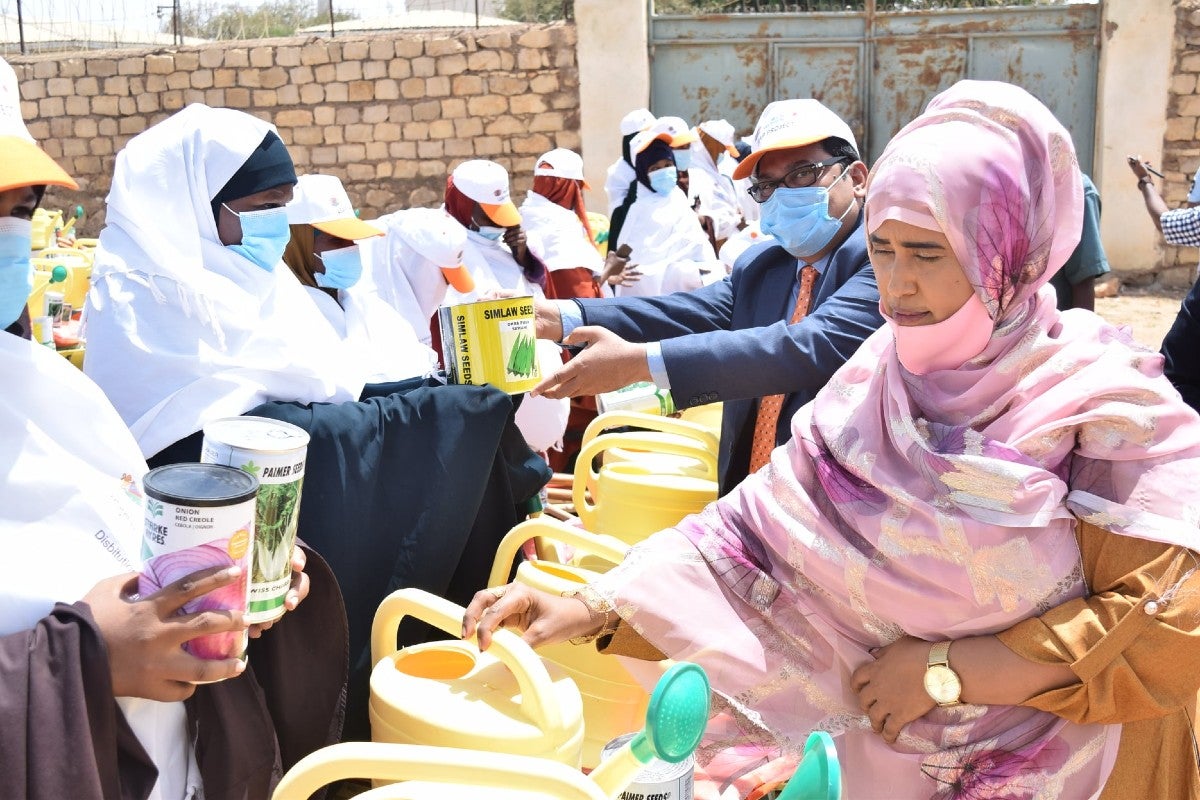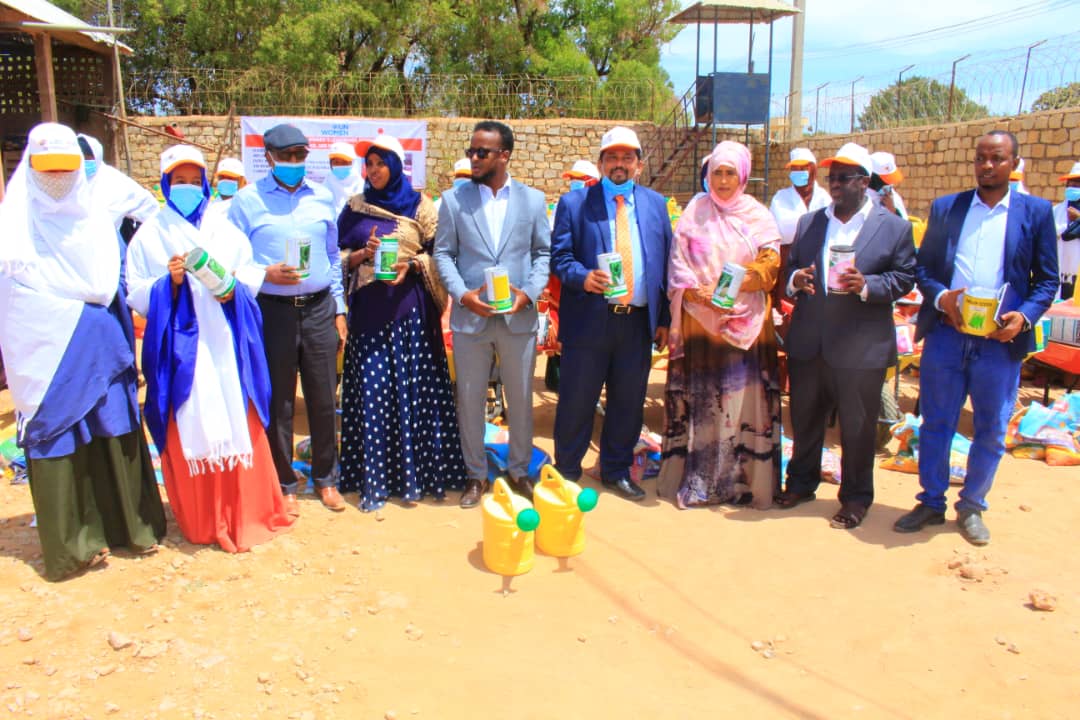Promoting Climate Resilience and Sustainable Livelihoods for Women in Drought-Affected South West State of Somalia
Date:
One hundred internally displaced persons (IDPs) and marginalized women in Somalia received farming tools and seeds at a high-level event organized by UN Women Somalia in partnership with the Ministry of Women, Family Affairs and Human Rights (MoWFAHR) of South West State of Somalia and CARE International. This initiative was made possible through the Government of Japan-funded Women’s Leadership, Empowerment, Access and Protection (LEAP) project, which provides focused support to displaced women and host communities in Kismayo (Jubaland) and Baidoa (South West) to sustain their livelihoods and resilience.

An estimated 7.7 million Somali women, men, and children will need humanitarian assistance in 2022. With about 2.9 million people internally displaced throughout the country, Somalia has one of the highest numbers of IDPs in the world. Of these, 2.2 million require urgent humanitarian assistance. Around 51 per cent of the internally displaced and those in need of assistance are women.
The Government of Japan-funded Women’s Leadership, Empowerment, Access and Protection (LEAP) in Somalia project adopted the Triple Nexus programming seeking to promote access to livelihood opportunities; preventing and reducing violence against women and girls in target communities and building and sustaining peace through gender-responsive stabilization and recovery of conflict-affected displaced women and men in Kismayo (Jubaland) and Baidoa (South West).
“The distribution of farming tools and seeds today to the IDPs and marginalized women will enhance the livelihoods and sustainability of farming practices in South West State,” said Sadiq Syed, Head of the UN Women Somalia Program.

Raho Mohamed Ali and Amal Farah Mohamud, two beneficiaries, explained the opportunities they got from the LEAP programme and said the project had enhanced their leadership, economic opportunities skills and knowledge on climate smart agriculture and supply management of farming products and it strengthened their capacity on farming storage. They discussed opportunities for 530 women in Baidoa who are benefiting from Village Savings and Loan Associations (VSLA), increasing the purchasing power of their households.
“CARE will look forward to continuing the collaboration with UN Women on similar programs to contribute to the economic development and leadership of women in Somalia,’’ said Iman Abdullahi, CARE Somalia Country Director. He said Care was proud to be a part of the LEAP programme implementation and emphasized the support will go a long way in building resilience for those recipients.

Ifrah Ahmed, Founder and Executive Director of Ifrah Foundation said she was grateful to the MoWFAHR and UN Women for the collaboration in tackling negative social norms, ending Gender-Based Violence and promoting human rights. Ifrah highlighted the role of civil society organizations and Somali women in improving the livelihoods of households and she said there needs to be the continued drive for awareness and the promotion of women’s economic empowerment.
“I appreciate the government of Japan, UN Women and other partners for the efforts in supporting Somali women and girls,” said Fahima Omar Osman, Minister of Women, Family Affairs and Human Rights (MoWFAHR) while delivering the closing remarks.